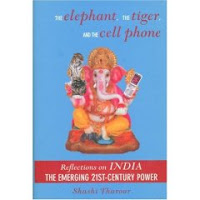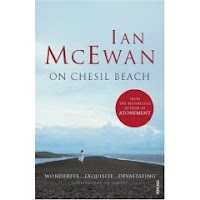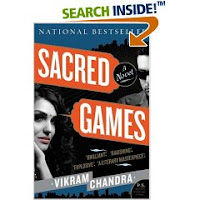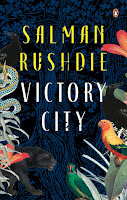
The Elephant, the Tiger and the Cellphone
By Shashi Tharoor
It’s a book with all the standard clichés of a transforming liberalized India – the cell-phone wielding sadhu, the elephant that is developing the stripes of a tiger, the Sreesanth and Nell episode symbolizing a new India, the co-existence of Sai Baba’s Puttaparthi and the Infosys campus. Tharoor’s collection of essays published on the eve of India’s 60th year of Independence has really nothing terrifically new to say. Yet in his easy and evocative manner, he manages to say the old things in a refreshing way, making the book an interesting and informative read.
Maybe I am biased. I have a soft spot for the man – like me he is a Keralite, proud of his heritage, yet he has never lived in Kerala. His vision of India finds a resounding echo in mine – a deeply secular country that, like Whitman, acknowledges that ‘we are vast, we contain multitudes’. His articulation of the idea of India is one of the most evocative I have come across, as is his take on his brand of Hinduism. When he says “Indians are used to multiple identities and multiple loyalties, all coming together in allegiance to a larger idea of India, an India that safeguards the common space available to each identity. That idea of India is of one land embracing many. It is the idea that a nation may endure differences of caste, creed, colour, conviction, culture, cuisine, costume and custom, and still rally around a consensus. And that consensus is about the simple idea that in a democracy you don’t really need to agree – except on the ground rules of how you will disagree,” he is talking about an idea of India that takes Huntington’s thesis of the clash of civilizations head on. If indeed India does survive on this idea, the clash of civilizations theory is truly dead. Similarly on his views on Hinduism, I can only nod and agree – “…I am a believing Hindu…(but) I am not a ‘Hindu fundamentalist’: I see Hinduism uniquely as a religion without fundamentals…Hinduism is, in many ways, predicated on the idea that the eternal wisdom of the ages about divinity cannot be confined to a single sacred book….It is a truth that admits of the possibility that there might be other truths…Mine is not a faith for those who seek certitudes, but there is no better belief system for an era of doubt and uncertainty than a religion that cheerfully accommodates both.” This inclusive, open, all-accommodative view of his country and his religion, I believe, needs repeated articulation by all who stand by it in this uncertain and divisive age. And just for that, this book needs to be read by as many people as possible.
With this vision of his country, the choice of the men (and woman) who have shaped his India are pretty apparent. Tharoor has written a biography of Nehru and he makes his adoration of the man very obvious. So too his esteem for Gandhi, Patel, KR Narayanan and Maulana Azad (the chapter on Azad was pretty revelatory to me and possibly deserves a post all by itself!). He is less enthusiastic about Mrs. Gandhi and his chapter on Ambedkar while being laudatory also criticizes the formidable lawyer’s ‘impatience with established political structures as instruments of change’.
There are parts of the book that can appear wide-eyed and almost naïve to those who live with the harsh reality of India everyday. His chapter on Kerala, for instance, while echoing many of my feelings for my homeland, tends to be a lot of laudatory hype without a reality check. His annual visits to his Kerala home he says found ‘a world of rustic simplicities and private inconveniences’; and it took the wisdom of years to learn to appreciate it. And while as a Marunaadan Malayali, he is justifiably proud of his Malayali cultural heritage (the land of Shankaracharya, Aryabhatta and Ayurveda; the only Indian language in which you can read Beowulf and the complete works of Shakespeare; its openness to cultural influences that has made Kerala a microcosm of every religion known to the country; Kalyanikuty, M F Hussein’s ‘emblematic Kerala woman, an enlightened modern figure steeped in her traditional culture, rising from it to conquer new worlds while remaining comfortable in her own’), he admits being a stranger in his own land, not being able to understand Ottamthullal, never having read the Mathrubhoomi and Manorama papers, never having read Vallathol or Kumaran Asaan. And of course, never having lived there, he sees the social miracle wrought by the first democratically elected Communist Party – the 100% literacy, the female empowerment, the workers rights- without seeing the price people who stay there pay day in and day out – the loss of jobs, the lack of private investment, the numbing bureaucracy and the daily bandhs and strikes that make daily life so difficult. With all the acclaimed gender equality stories, Kerala women still remain the most socially tradition-bound in all of South India. This chapter on Kerala is but one example of a somewhat simplistic look at the India today.
Tharoor is a product of his upbringing and his views are those of a liberal city-bred, English-speaking Stephanian. He could be accused, like his hero Jawaharlal Nehru, of looking misty-eyed, through rose-tinted glasses at a vision of an India that is probably far from reality. But that vision is a positive and hopeful and inspirational one that bears re-visiting again and again. At the end you know Tharoor’s vision is borne out of a deep and abiding love for the country he calls home, even if he has spent more years outside than in it. And when that vision is told the way Tharoor tells it, in a language that is motivating and moving and witty and whimsical, you can forgive him all the clichés in the world.






